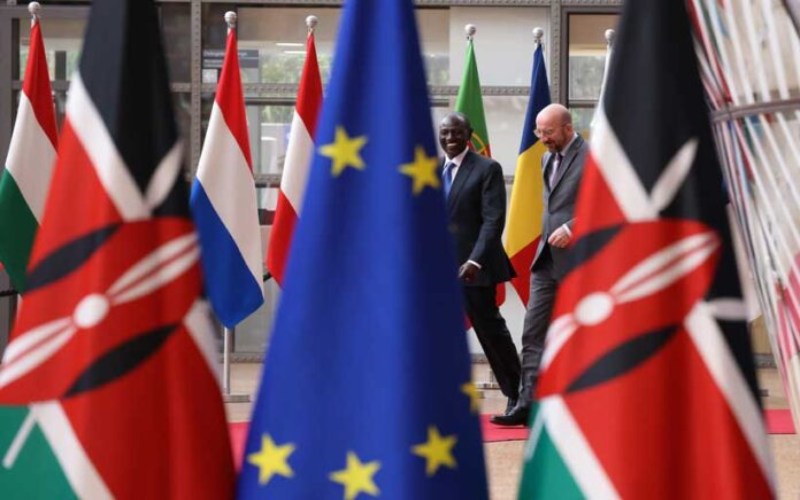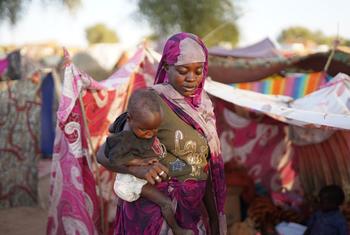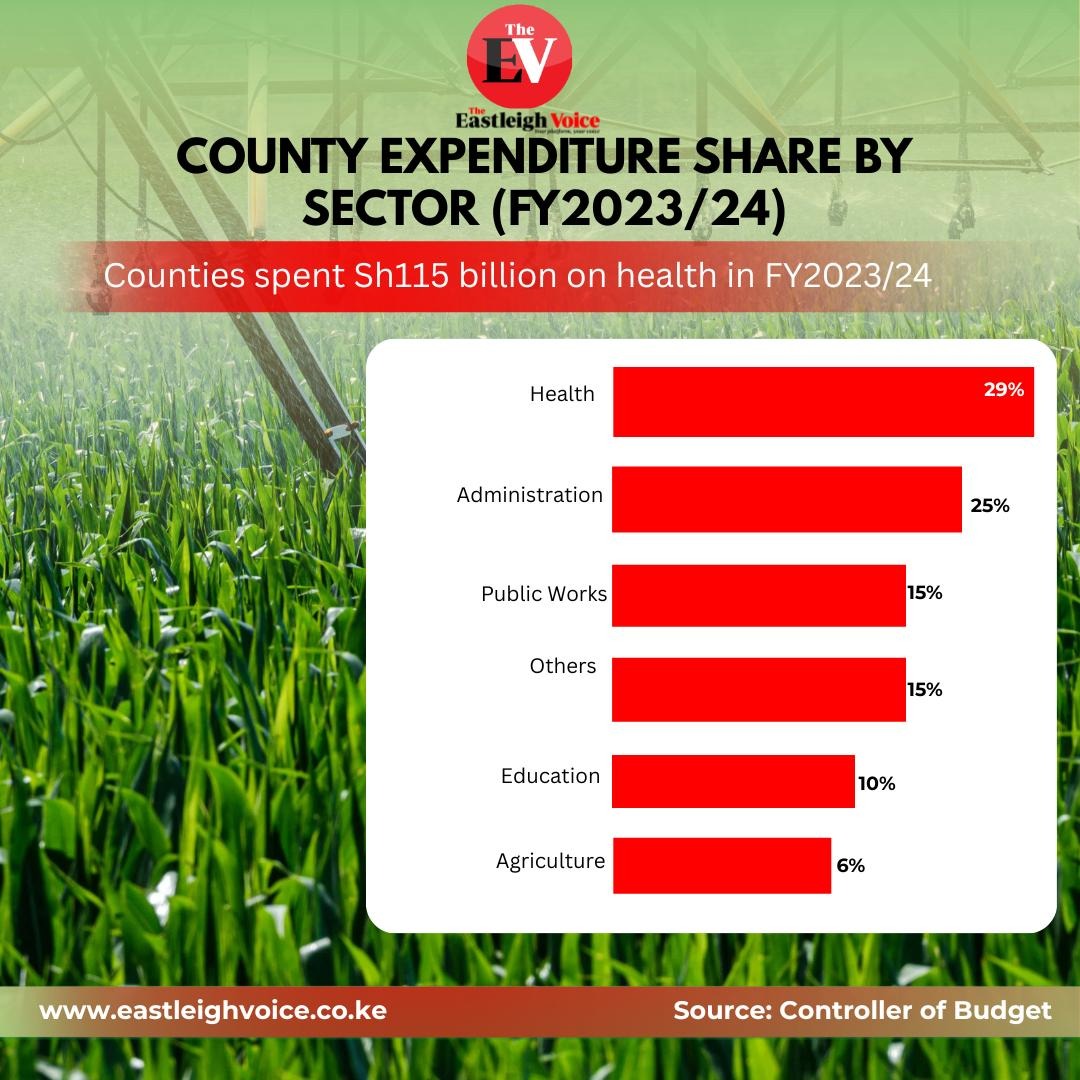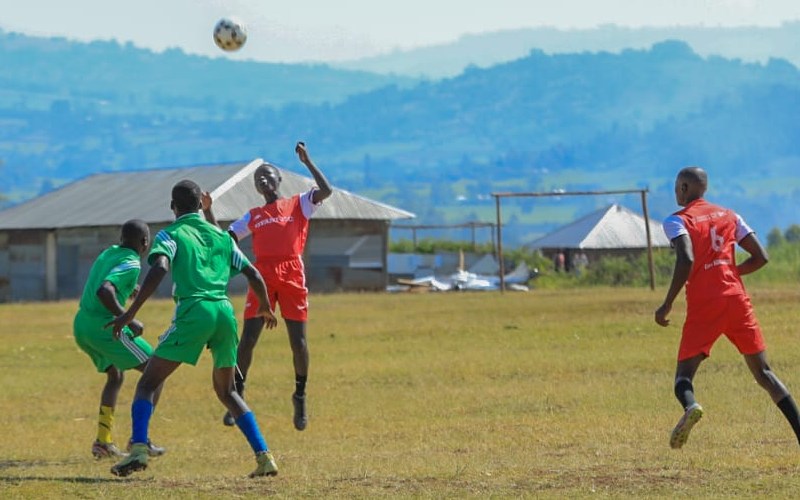Lamu men's crisis: Calls grow for rescue centre to address rising suicide cases
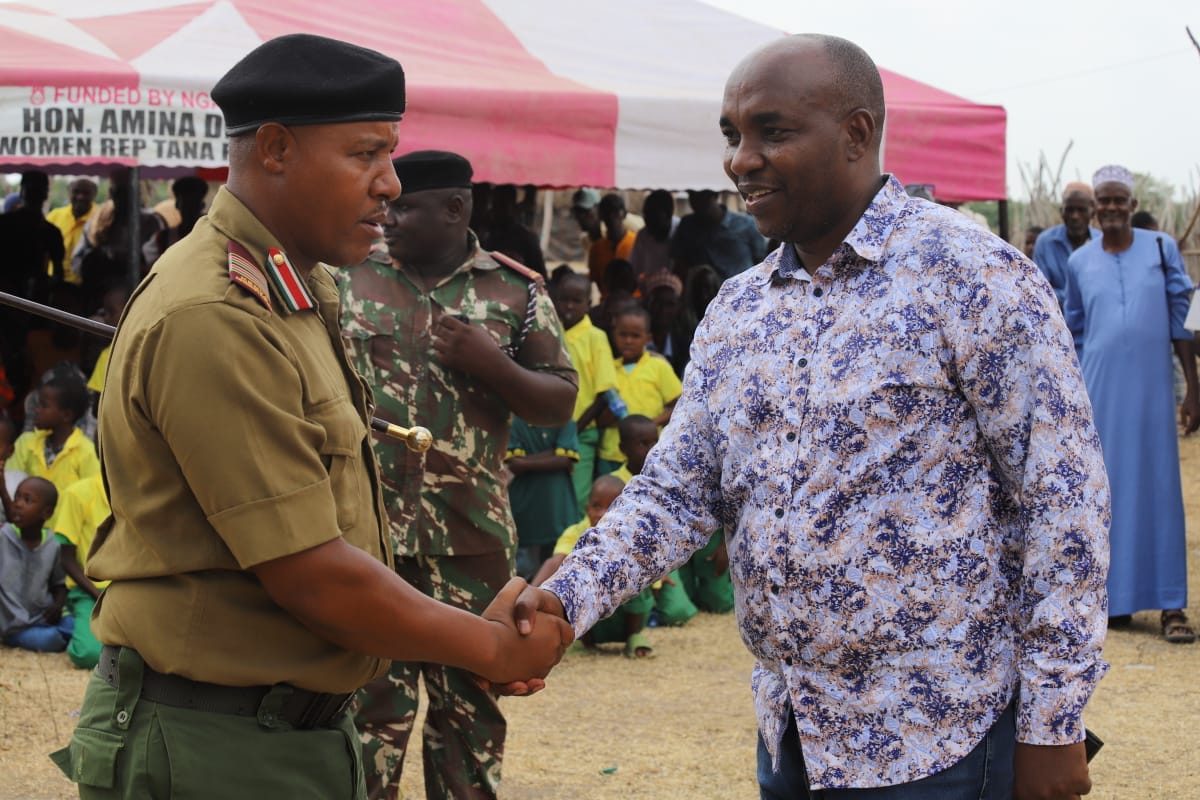
This follows increased cases of suicide among the men, especially in Mpeketoni Division of Lamu West.
Many times calls to have rescue centres established have been on issues surrounding the female gender.
You will always hear rescue centres established in certain regions to save victims of sexual and gender-based violence (SGBV).
More To Read
- How to talk to your kids about mental health
- Scientists discover brain cells linked to depression, offering hope for better treatments
- Mental health services now covered under SHA - CS Duale
- National Assembly approves Bill to establish mental health centres for police officers in all counties
- MPs push to scrap law criminalising suicide attempts in Kenya
- Kenya to conduct first national mental health survey under new advisory committee
There are times you hear girls taken to rescue centres to save them from Female Genital Mutilation (FGM), early and forced marriages among other scenarios.
In Lamu, however, there have been recent calls to have a rescue centre established for men in the county.
This follows increased cases of suicide among the men, especially in the Mpeketoni Division of Lamu West.
The trend is believed to have been attributed to cases of domestic squabbles and the tough economic times, a situation that has resulted in most men keeping such issues to themselves with others opting to take their own lives.
Land problems have also been a contributing factor leading to some individuals killing themselves in pursuit of land ownership.
Areas that have reported recurrent cases of suicide among the men include Mpeketoni Town, Umoja, Hongwe, Nairobi Area, Baharini, the neighbouring Hindi Town and surrounding areas.
At least ten people have died of suicide in the mentioned areas within a month according to police reports privy to the Nation.
Lamu West Deputy County Commissioner, Gabriel Kioni told The Eastleigh Voice that there is a need for men to stop shying away from counselling sessions meant to help them mitigate through life challenges.
“Yes. Suicide cases among men are rife and all this is because many are introverted. But we encourage people to seek guidance from the police. Cases of suicide are mostly reported in police stations. Fortunately, the police have a special unit to deal with guidance and counselling. Let people use such avenues to rescue themselves instead of rushing into killing themselves,” said Kioni.
“My office has been open for consultation for anyone seeking help. I also encourage people to visit chiefs’ offices, children’s offices or the social service offices whenever they face things like domestic squabbles. They will automatically get help there.”
During an interview with The Eastleigh Voice, however, men in Lamu claimed that most of the focus has always been projected on the female gender at the expense of their male counterparts.
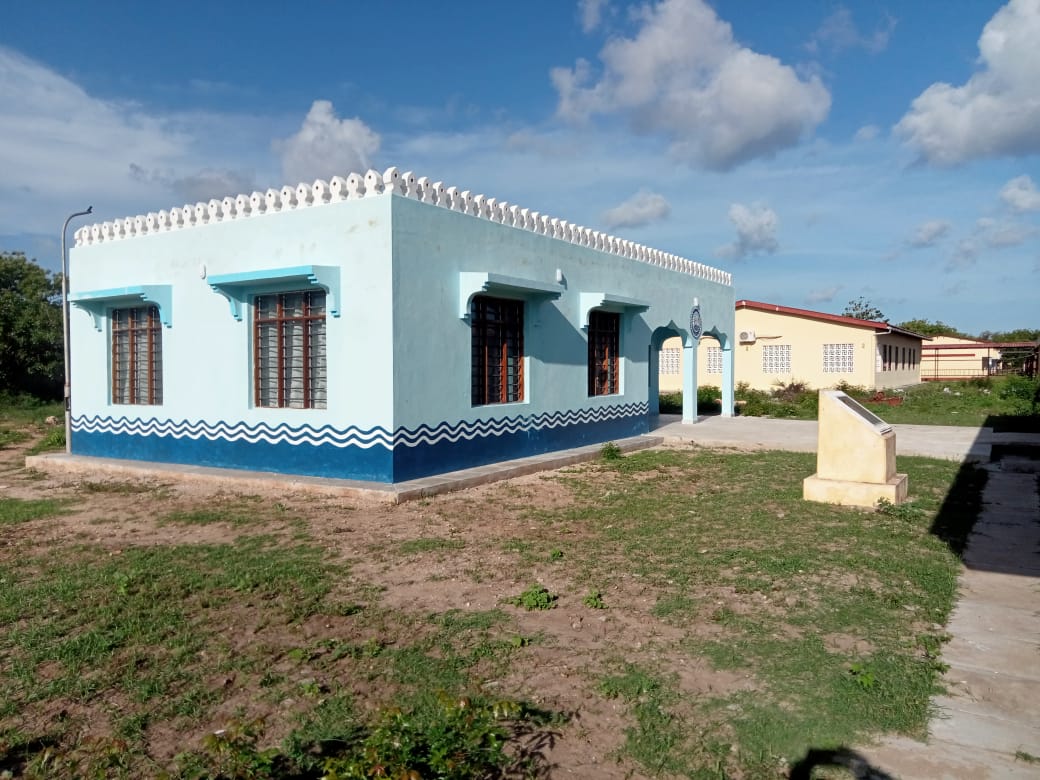 The Mokowe Sexual and Gender-Based Violence (SGBV) Rescue Centre for Women and Girls in Lamu County. Men are now pushing for a similar rescue centre to be established for them in Lamu County. (Photo: Farhiya Hussein)
The Mokowe Sexual and Gender-Based Violence (SGBV) Rescue Centre for Women and Girls in Lamu County. Men are now pushing for a similar rescue centre to be established for them in Lamu County. (Photo: Farhiya Hussein)
Kimani Wanyoike, an elder in Mpeketoni, noted that many men in the area have been passing through critical challenges in their lives, both socially and economically.
The men, however, don’t seek assistance or care.
Depression
This has subsequently led to their feelings building up without an escape valve, resulting in stress and depression.
Wanyoike said women are advantaged and can cope with hard circumstances because they have always been willing to share their personal challenges with friends in their chamas, church members and other groups in the social setting.
He said it is high time that a men's rescue centre is established in the county so that the male gender can also feel safe to run to such centres and get help.
“Most of the suicide cases recorded in Mpeketoni and Lamu West are involving men. These men face diverse challenges, ranging from family (domestic) to the tough economy among others. Unfortunately, the men don’t see the need to share such challenges with friends,” said Wanyoike.
He added, “Their feelings build up without any escape valve which can be through talking with friends and family, or a professional one, through therapy or other mental health services. Keeping issues to yourself has always escalated to a crisis point, leading to one opting to commit suicide. A rescue centre for us, the men, will help curb this.”
Kamau Mbuthia, an elder in Umoja area of Mpeketoni, is alarmed by a recent incident where two of his male friends committed suicide under unclear circumstances.
One of the friends, a mechanic, was working at a garage on the outskirts of Mpeketoni Town.
Mbuthia reiterates that his friend was always jolly only for his body to be found dangling on a tree last month.
“Depression is real. This friend, a mechanic, looked okay. I used to interact with him. Despite being close to me; my friend didn’t disclose any burning issues surrounding his life. I discovered he was fighting domestic problems only after he died of suicide and the note he left behind,” said Mbuthia.
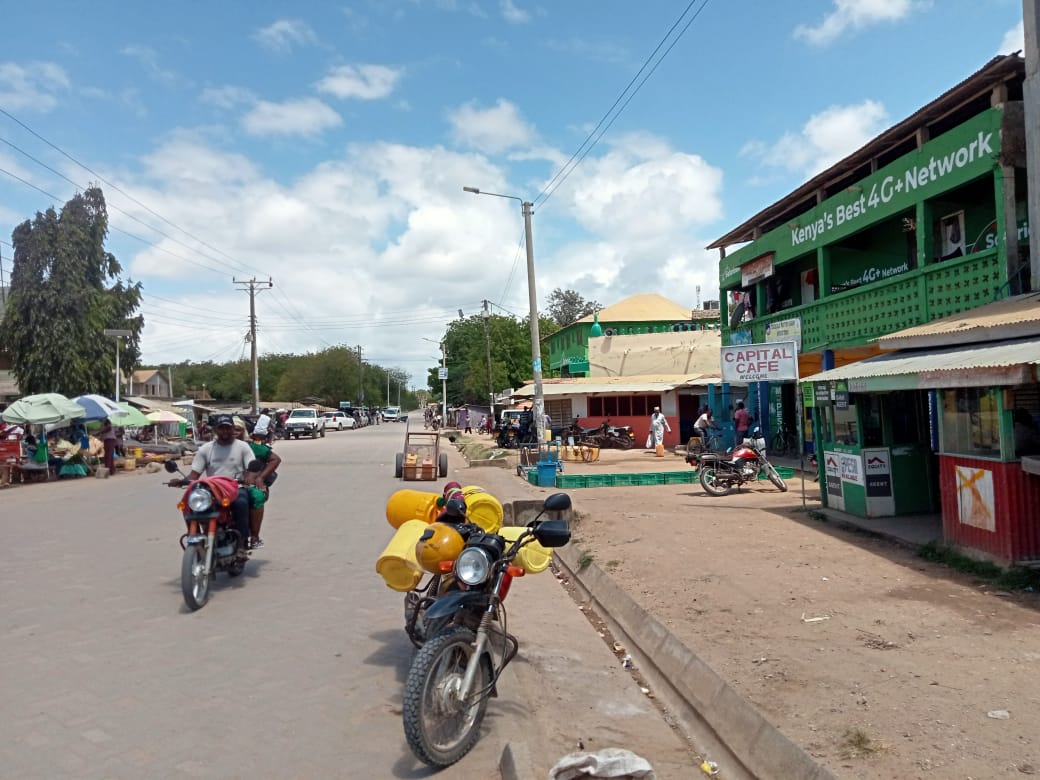 A section of Mpeketoni Town in Lamu West. (Photo: Farhiya Hussein)
A section of Mpeketoni Town in Lamu West. (Photo: Farhiya Hussein)
Margaret Njeri, a pastor in Hindi, said that even if a rescue centre for the men is established in Lamu, there is still the need for the men to develop a tendency to attend church services to avert themselves from suicidal thoughts no matter what.
Spiritual nourishment
Njeri noted that apart from the religious faith being recognised as a protective force against suicide, it also has multiple features that help save lives.
There have been few cases of women committing suicide in Lamu and the country at large.
She attributed the situation to the fact that every Saturday and Sunday, you will spot the women flocking to churches to seek spiritual nourishment.
She says it has become a norm that church benches are filled up by women.
“The men are left out there, working all through, concentrating on how they will solve their problems on their own. That’s why they end up getting frustrated and killing themselves. They don’t have time for God. Let them consider attending church services. Church sermons are therapeutic. You can get free advice there about life and how you perceive it,” said Njeri.
Psychologists interviewed by The Eastleigh Voice noted that society itself is to blame for raising men in a manner that seems to be immortal, strong beings.
Andrew Masama, the Chairperson of the Kenya Counselling and Psychological Association (KCPA) Lamu Branch, says society has always shaped the sense of ‘being a man’ as someone who cannot disclose any vulnerabilities since that will make them look weak if something like depression does come up.
This makes the men completely keep it to themselves.
“There are issues of masculinity weakness in men. Men are taught right from childhood to be strong. This in turn brings an increase in stigma in men sharing their personal family issues with fellow men. We don't have men's clubs which might reduce stigma,” said Masama.
Fatma Ahmed, a psychologist in Lamu Town, notes that the lack of parental support in family separations has increased marriage breakdowns and frustrations among many couples.
“Instead of finding an amicable solution to marital problems, parents have always sided with their daughters and left the boy child to suffer lonely, especially when the marriage breaks. There’s also the phobia of not being willing to face psychologists around the hospitals and also having church clinics of men conferences for men health-talk, inviting psychologists and other people. All these ought to be considered for the betterment of the men to avoid losing them in society," said Ahmed.
The psychologists urged churches and mosques in Lamu and the country to enhance social welfare and counselling programmes, to cater to the needs of people undergoing various challenges.
“People need to be educated and counselled on what to do when things are not working out. Never be ashamed of speaking about your problems. This helps unburden the emotional load,” said Masama.
A March 2023 Policy Brief by the Ministry of Health in Kenya indicated that suicide deaths in men were 5 times greater than in women.
The report further highlights that globally, suicide ranks among the three leading causes of death.
An estimated 703, 000 people take their own lives each year, and many more attempt suicide.
According to the World Health Organisation (WHO), there are approximately four suicide deaths in Kenya every day, with a crude suicide rate of 6.1 per 100,000 people and an age-standardised suicide rate of 11.0 per 100,000 people.
Top Stories Today

